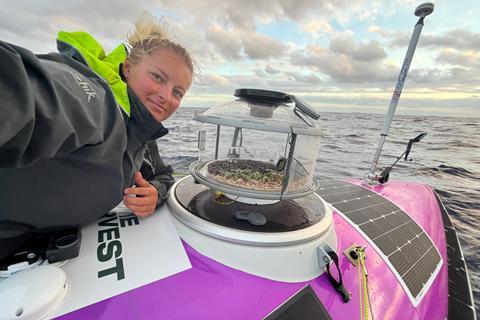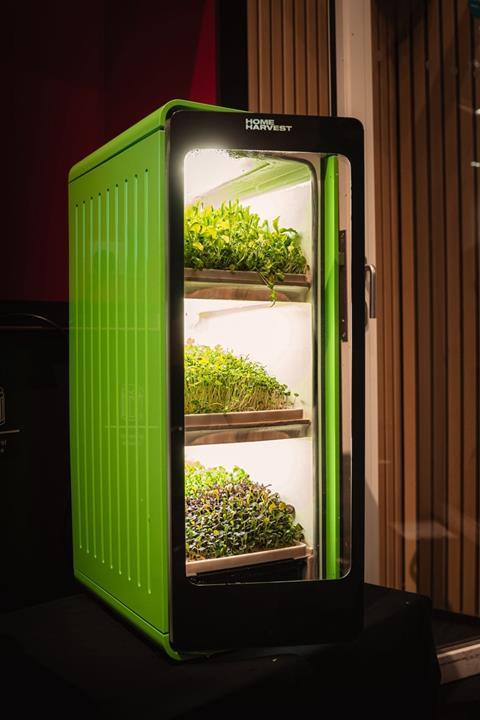New salad technology for domestic use is set to launch commercially in 2026

Yorkshire-based Home Harvest’s soon-to-launch ‘home farm’ technology has received a boost after a thoroughly rigorous testing process at sea.
The company’s home-farming prototype spent nearly six months at sea aboard Velocity – the Seas the Day team’s ocean rowing boat – during its record-breaking trans-Pacific voyage.
To ensure a ready supply of fresh greens for rowers Miriam Payne and Jess Rowe, Home Harvest created a special on-board device that guaranteed a steady supply of nutritious leaves and microgreens.
The solar-powered technology was designed and produced in under 12 weeks. By simply inserting the seed trays, the rowers could enjoy fresh, leafy greens that contributed to the 5,000 calories they required daily.
The ultra-fast-growing system provided fresh, nutritious, and tasty leaves every eight days, the company explained, thanks to the carefully regulated heating and lighting regime.
Payne said: “As far as we’re aware, we were the first crew to adopt technology like this, which not only helped keep us physically well but also supported our mental wellbeing. We turned the boat into a floating farm!”
Rowe added: “We mainly had dry rations to get us through the six-month row, which we supplemented with fish from the ocean, but it was a huge bonus to have access to fresh leafy greens and herbs to sustain us and ensure we were getting extra vitamins and minerals that were missing from our other rations.
“In the face of even the harshest environments, it was reassuring to know that we could enjoy a regular and reliable source of healthy food to keep us fighting fit for the challenges ahead.”
Upcoming commercial launch

Home Harvest was co-founded by well-known salad industry figure and agricultural entrepreneur Andrew Johnson, who explained that the technology works by using higher seed density in the paper seed mats to achieve faster growth, with the system creating the perfect growing environment with controlled temperature and light.
”Miriam and Jess had to simply add water to enjoy fresh, leafy greens in a matter of days rather than months, and we’re delighted that the prototype continued to work for the duration of the expedition, in one of the harshest environments on the planet,” he added.
The technology used to support the Seas the Day crew is set to launch in early 2026 for domestic use as an in-home farming device, with one and three-shelf mains-powered devices being retailed alongside an app offering an array of recipes, support, and nutritional advice.
“Leafy greens are an essential part of any balanced diet, but what isn’t as well known is the environmental impact of the industry,” Johnson said. ”On average, 40 per cent of store-bought bagged salad is wasted, representing thousands of carbon miles and millions of pounds put in the bin.
“With Home Harvest, our mission is simple: reduce waste while offering a more sustainable alternative to store-bought salads. The taste is better, the environmental impact is minimal, and it’s proven to work even through the storms of the Pacific Ocean.”



